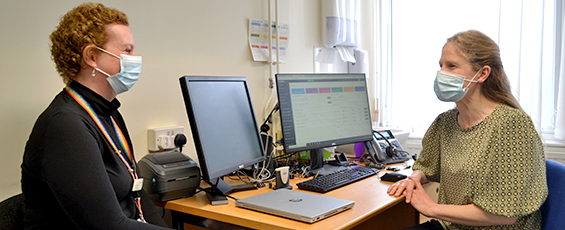What we offer

Royal United Occupational Health Service supports individuals and organisations on all aspects of health at work. They consider how current, previous or potential health problems may be affected by it.
The major role of the service is to provide independent advice to managers and employees on:
- The health of people at work.
- The quality of the working environment.
- Health risks of the workplace.
- The occupational implications of risks to health that can occur at work and the ability of employees, through reasons of their health, to undertake the work.
Maximising health in the workplace
The potential effects of work on health can be assessed at the start of employment and at agreed intervals during employment, as required. This includes health risks associated with exposure to different biological, chemical, physical, ergonomic and psycho-social hazards of the workplace. We then work with the individual and organisation to maximise the health at work of all individuals.
This includes the provision of:
- Immunisations – People who work in certain jobs should be vaccinated against high-risk diseases they may be exposed to at work. These occupational health vaccinations should be arranged and paid for by your employer. Please see Immunisation against Infectious Disease ('The Green Book') on the Department of Health website for more details.
- The management of needlestick injuries and other accidental occupational exposures to blood/body fluids including medication for post-exposure prophylaxis.
- Statutory examinations for health surveillance, eg. Control of Substances Hazardous to Health (COSHH), lead and exposure medicals, respiratory function testing for hazards such as gluteraldehyde and isocyanates, fitness screening for night shift workers, and audiometry if required.
- Workplace risk assessments for health and safety needs, environmental exposure monitoring and environmental controls.
- Determining if a medical condition has been caused or aggravated by the work undertaken or exposures associated with it.
- Determining if a person is fit to resume work following an episode of ill health, or, if not yet, when they might be able to return.
- Considering if somebody needs clinical treatment – how long it will last; what will be their ability to undertake a full range of duties and attend work during on-going treatment; and, on its completion, what will be their future ability to attend regularly without further problems and absences.
- Counselling and other psychological support.
- Alcohol, drug and lifestyle screening.

